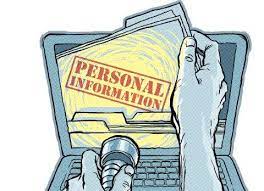Privacy is something many don't often think about ensuring. After all you're on your phone nobody is looking over your shoulder, who is there to be worried about? Everyone in charge of what's on your phone. Internet browsers, social media apps, and texting and calling services are not truly private. While there are encryptions embedded into different technologies that ensure a certain degree of privacy, that's not across the board.
Apple is one of the most popular tech companies and most widely used for cellphones in America, or at least all of the places I've been. They proudly boast of their encryptions protecting your privacy on test, call, and FaceTime, and even claim they can't view that data themselves. That's nice, but why can't the whole phone be protected with encryptions? My FaceTime with my best-friend is safe, but when I open Safari and begin typing a Google search for what we just discussed, that data will be tracked.
Tracked by who is a good question. Since companies like Instagram, Facebook, and TikTok create a feed specifically for you, they track and save all of your data. Everything you watched, how many times you did so, what you liked and so on. Local police forces use license plate tracking technologies and they're installed all around you. Your local police department guaranteed has multiple pictures of you just driving around in your car-- doesn't matter if you've done anything wrong or not. The federal government is given and has all of this data in a large database. That's crazy. There is no need to store data on everyone "in case" it can be useful in the future. Collecting data on criminals is acceptable but data belonging to anyone else should be disposed.
Something that freaks me out is the fact that Google had its server hacked. Google. The largest internet search engine that computes thousands of queries a second. If a company as established as Google can be hacked then anything can. Personal information such as race, age, political affiliation, being religious or non-religious, etc. should not be: a) sitting in a database piling up more information daily, b) able to be accessed by anyone other than the delegated employees at that company, c)given to the government or police upon unlawful request, d) collected by default rather than user-granted permission, or e) sold to third-party companies without user-granted permission. I dislike many of the things tech companies and applications are currently doing with my information and data, but it's already too late to backtrack. I have a digital footprint and it's big. I've posted embarrassing images and videos of myself that have been manually deleted by me, but can never be deleted from the internet due to data storing. I belive that the government should require all website, search engines, and applications to allow users to decide if they want their data stored-- if they want a feed tailored to them at the cost of their online privacy. I also think that the government and police departments should dispose of data containing exclusively lawful activity. I don't know what else to suggest because I don't see a feasible way of people truly gaining online privacy. Even if the government regulated all of these things and they were put into a user agreement when signing up for an app, there's still going to be a clause saying that the agreement is subject to change at any time, and what can we do about that? To protect yourself from these invasions of privacy I suggest creating an online alter ego, using none of your real personal information. This way you can reduce data being paired back to you across multiple websites/apps. We should all be worried about our privacy as we become more technologically advanced by the year. I do however belive that you cannot have true online privacy.



No comments:
Post a Comment